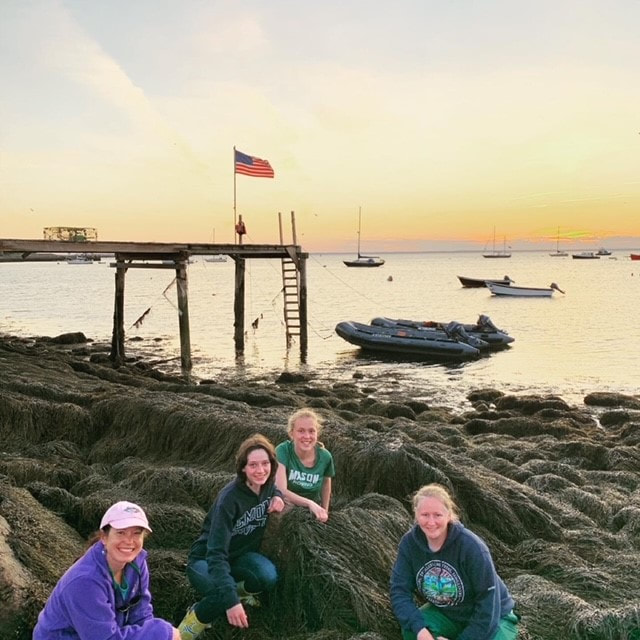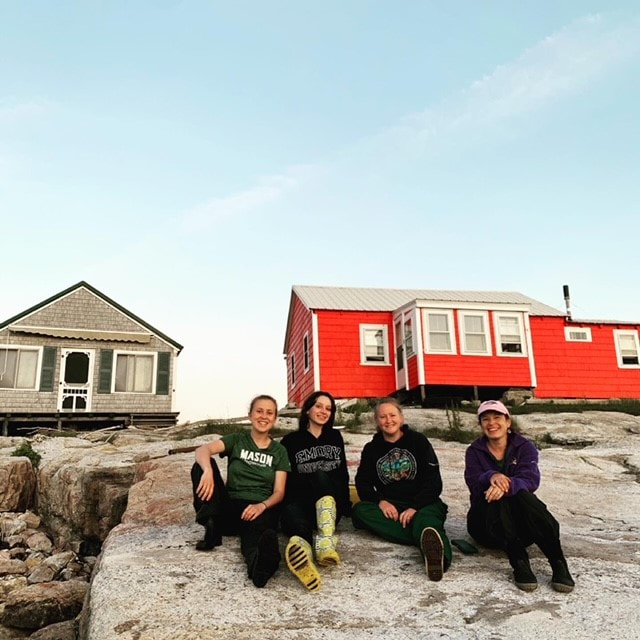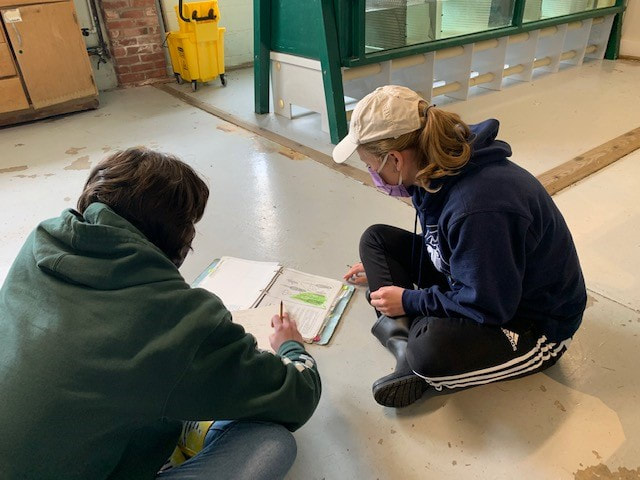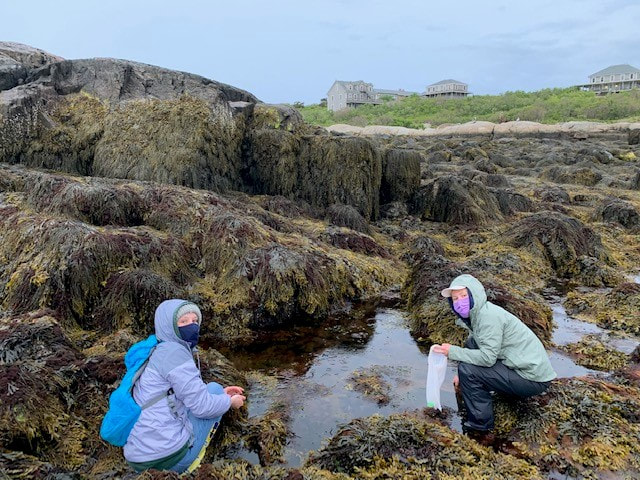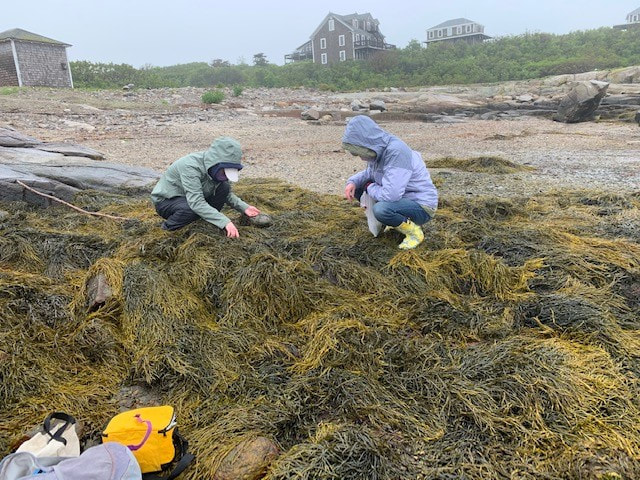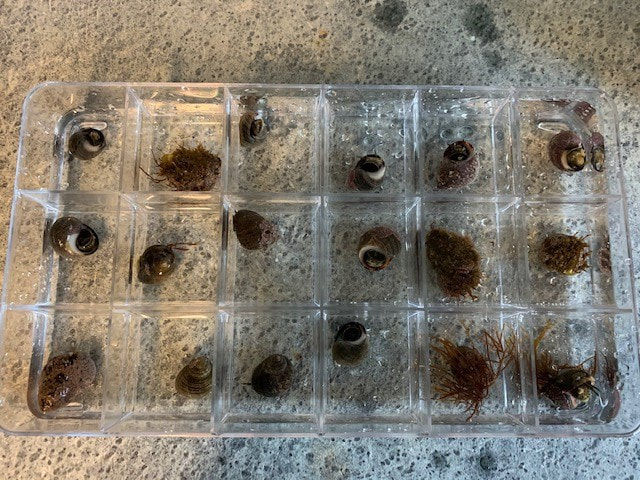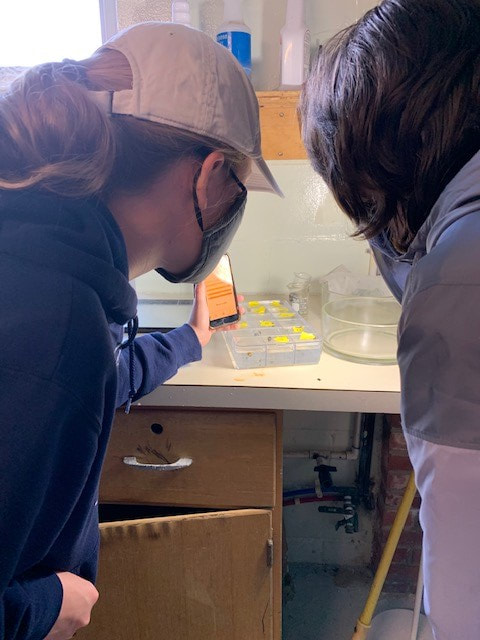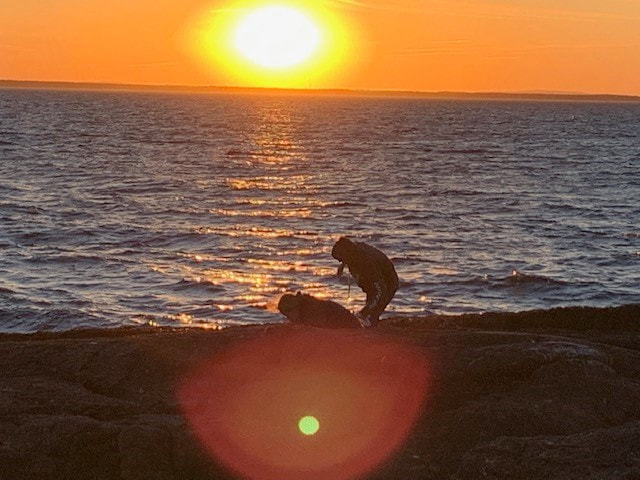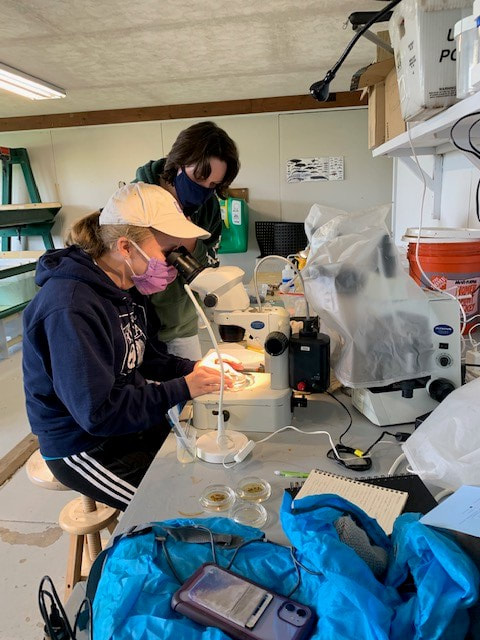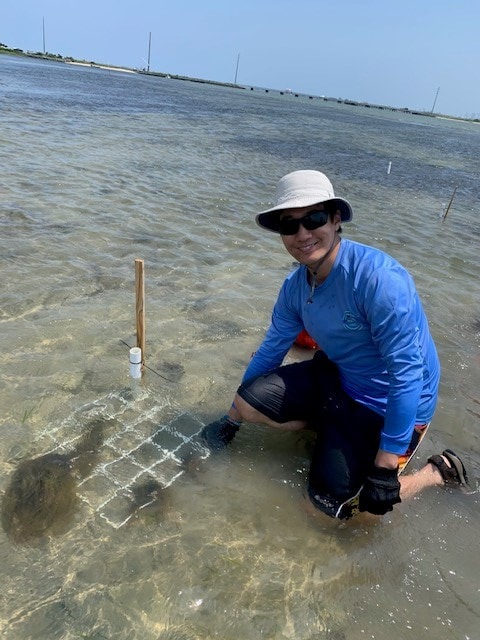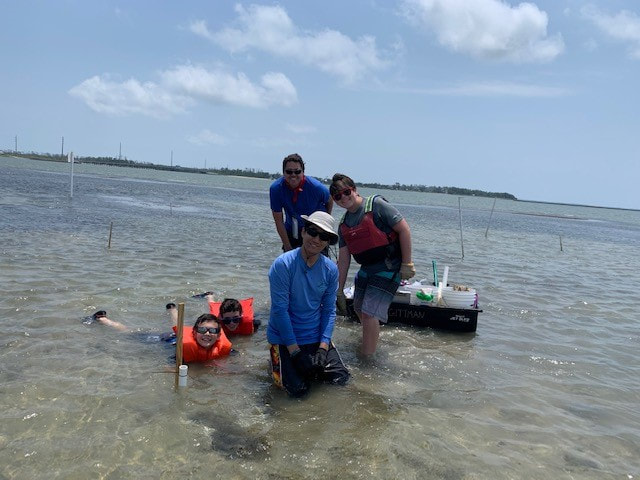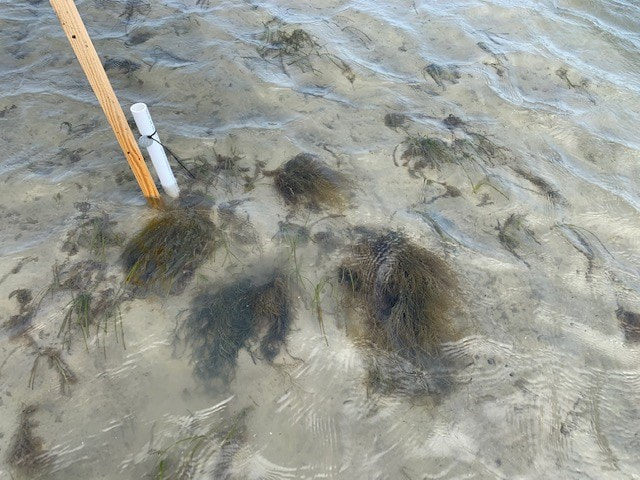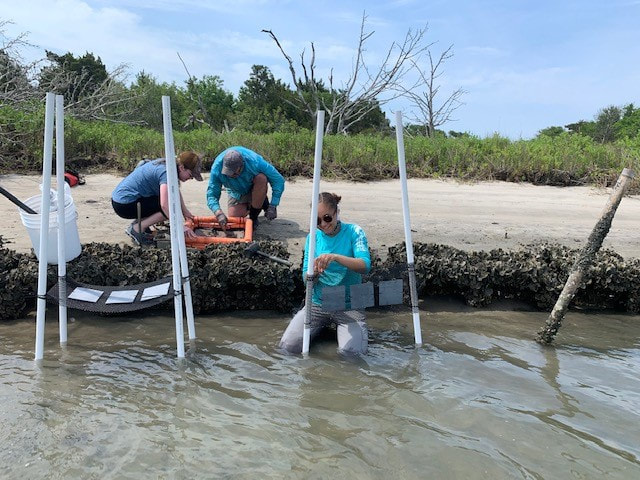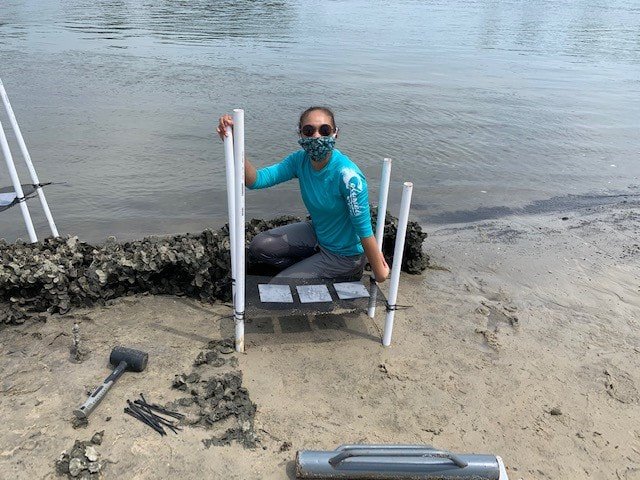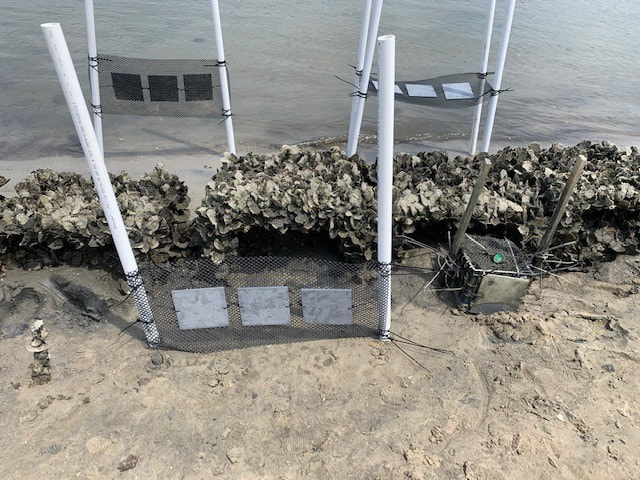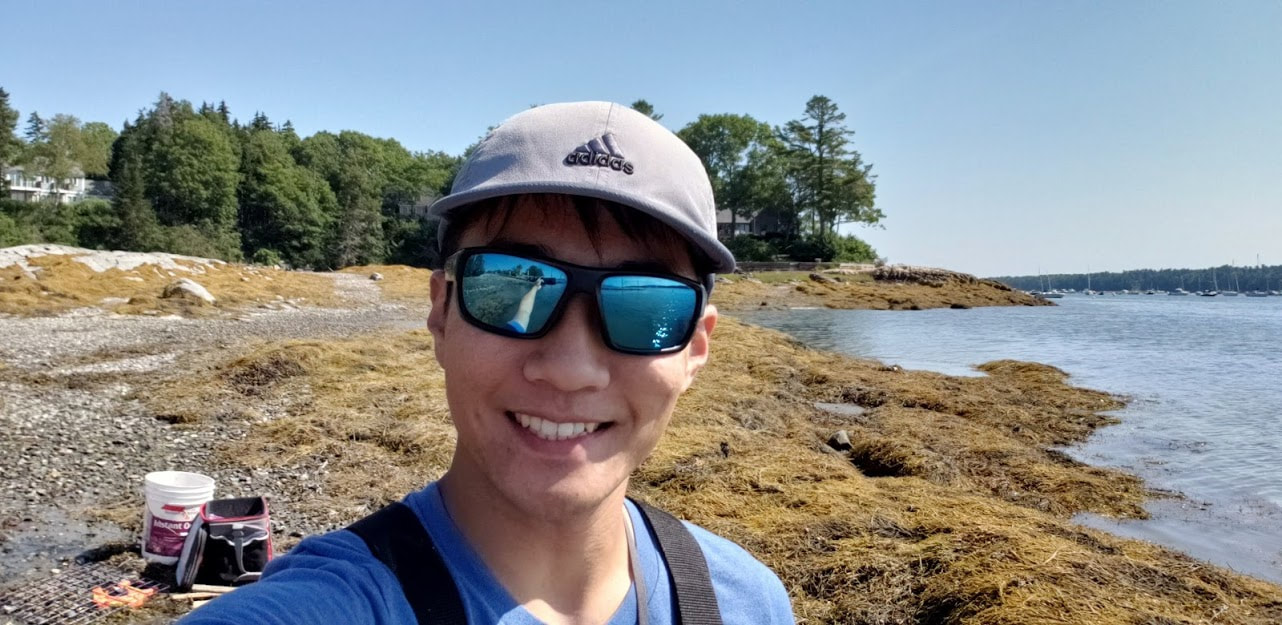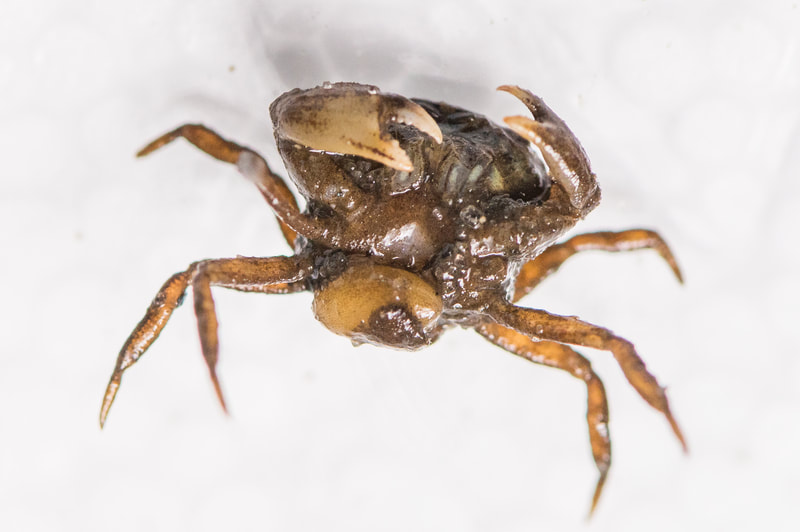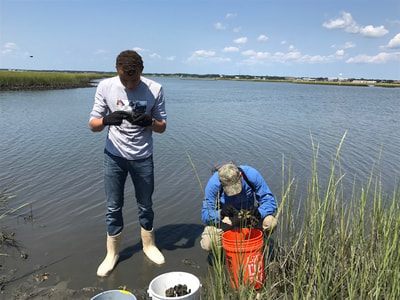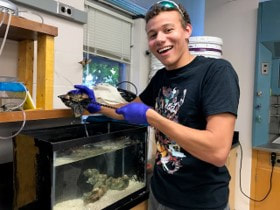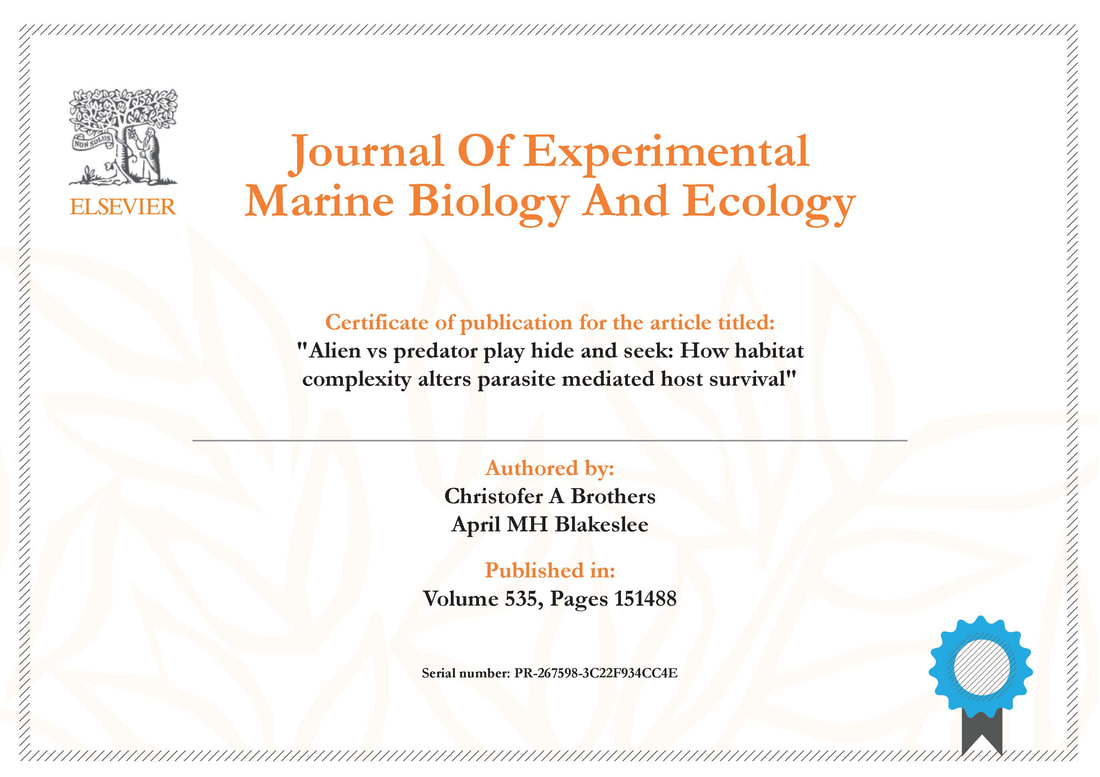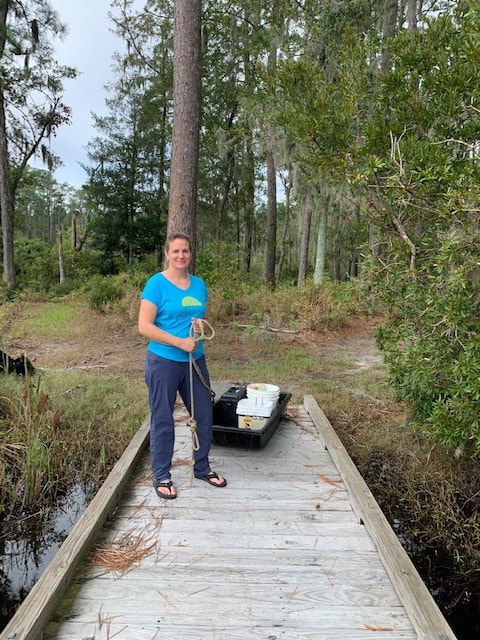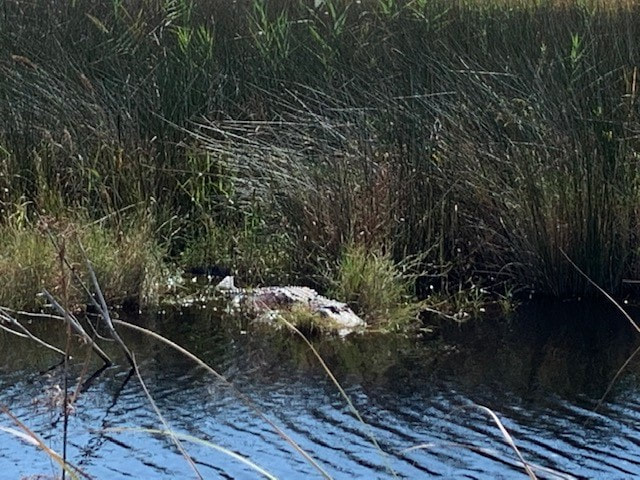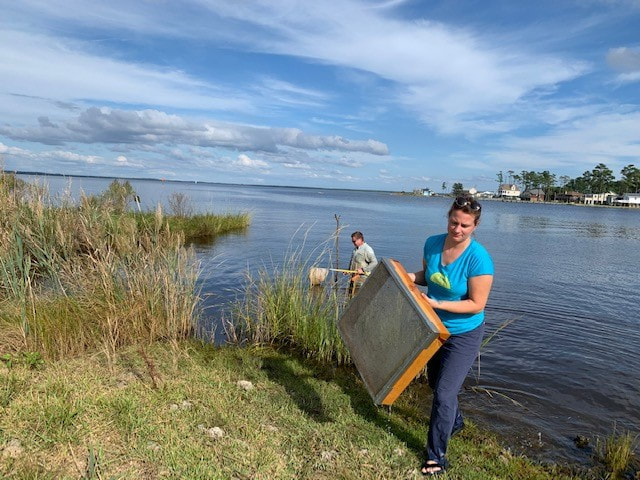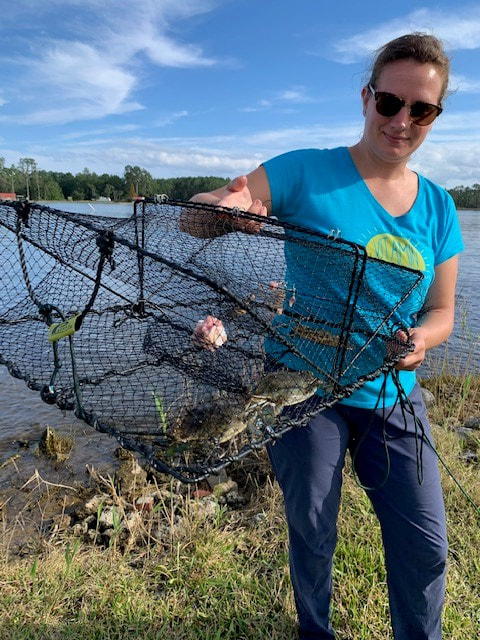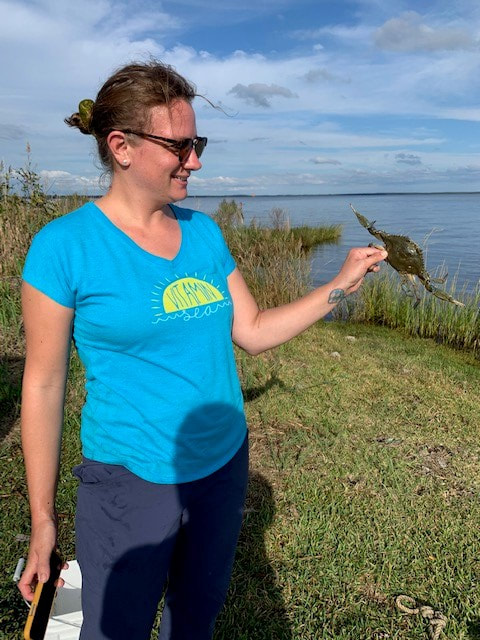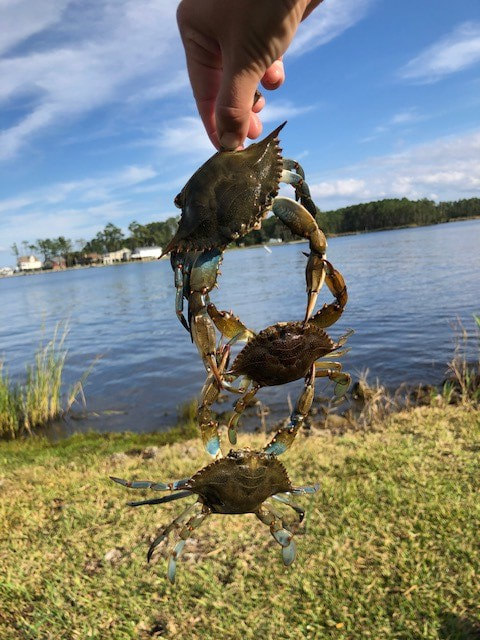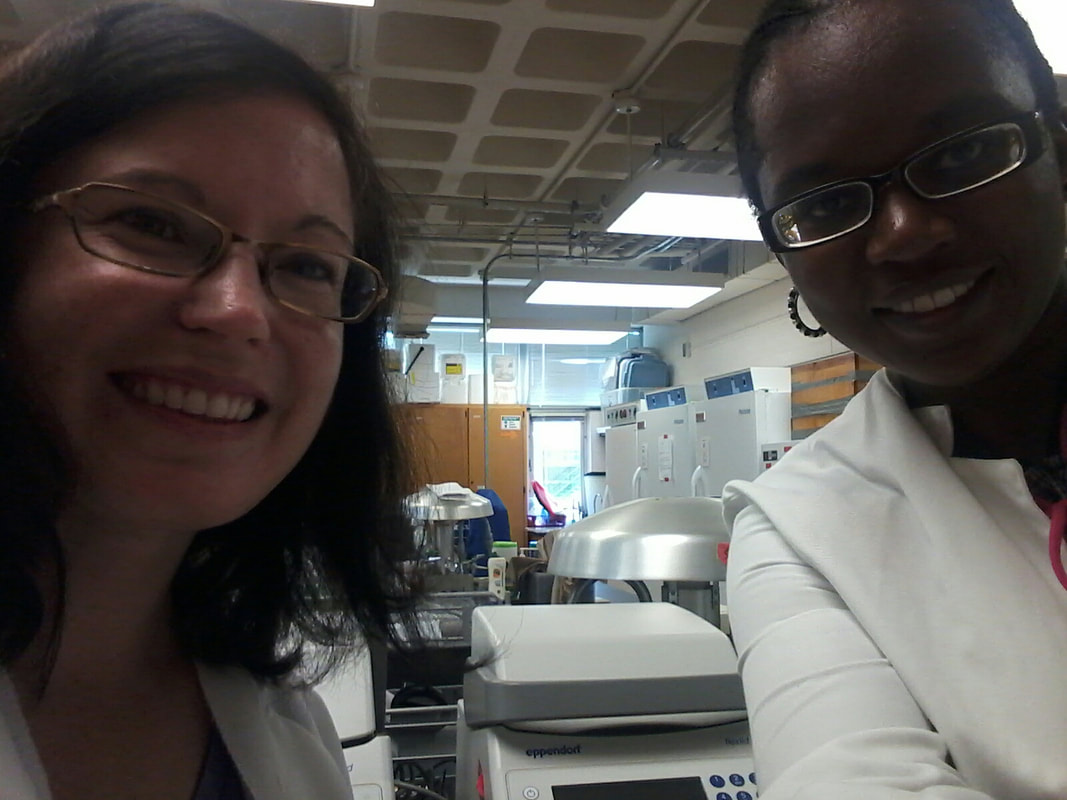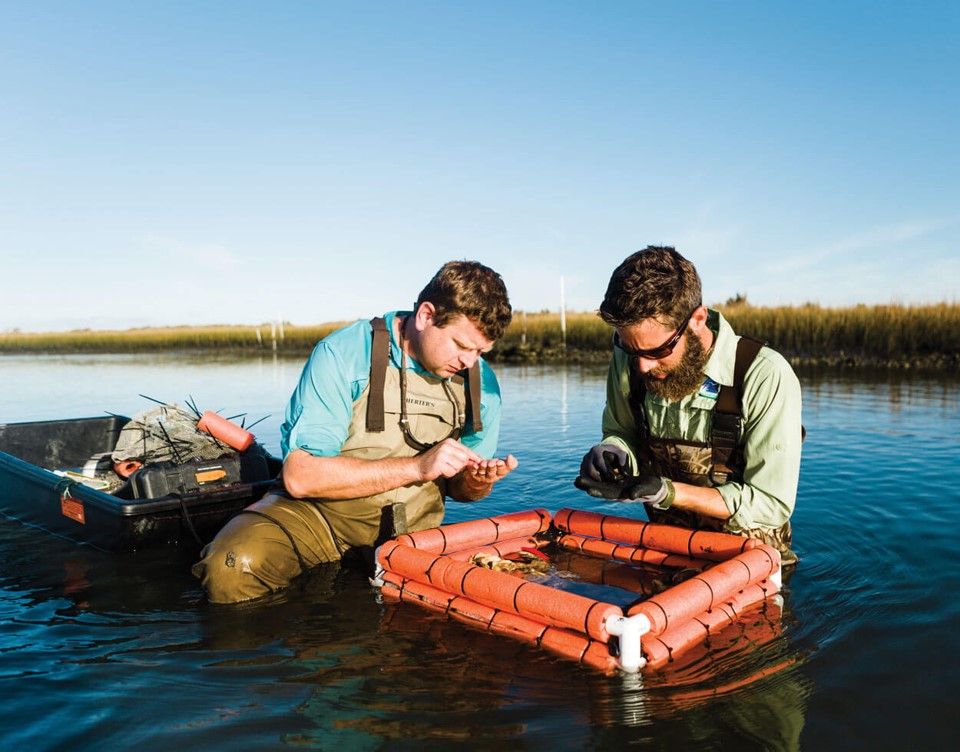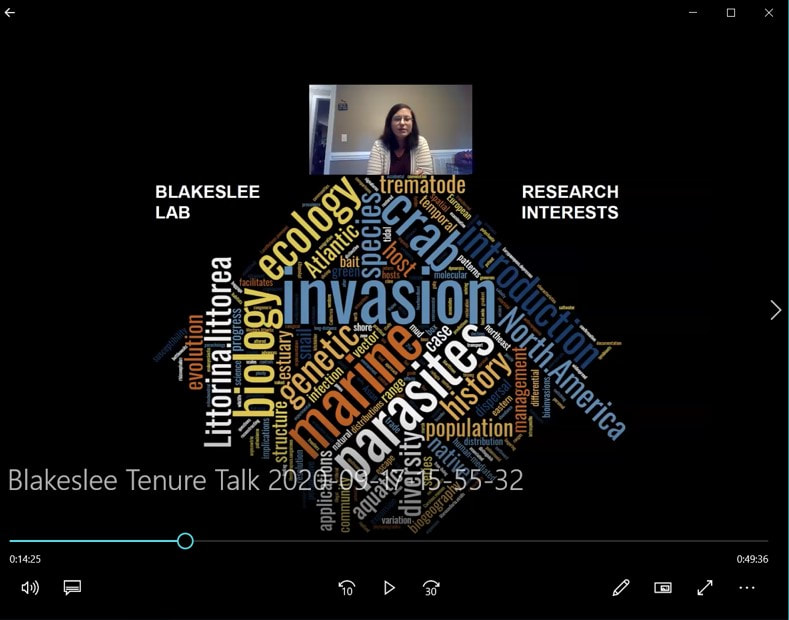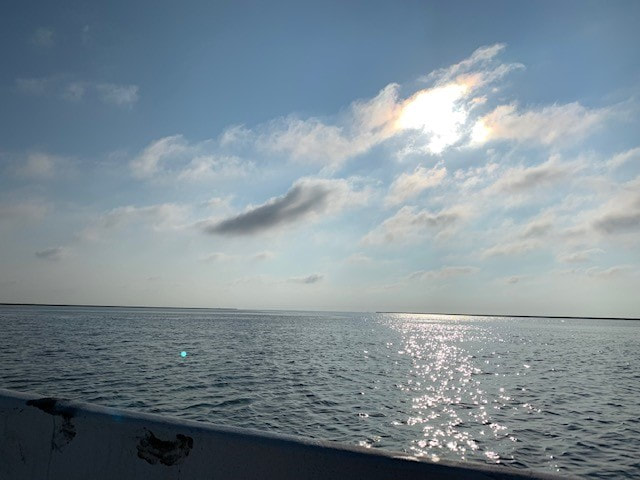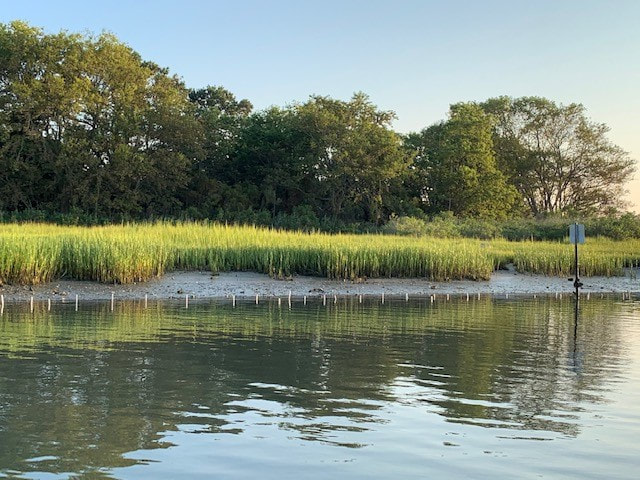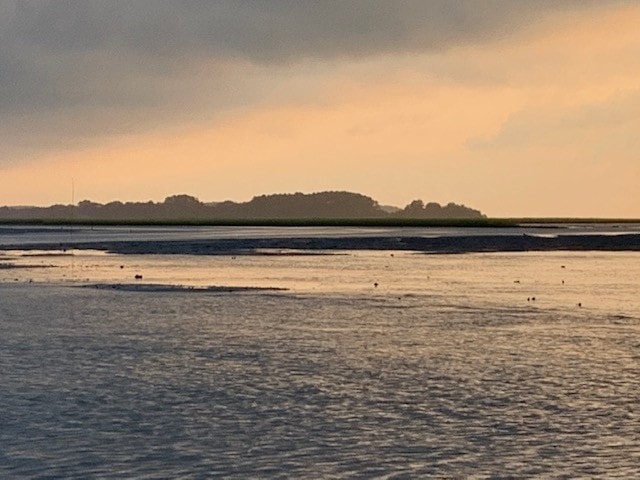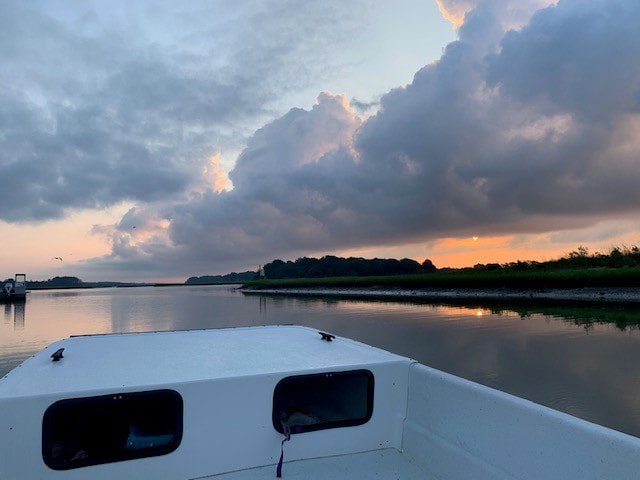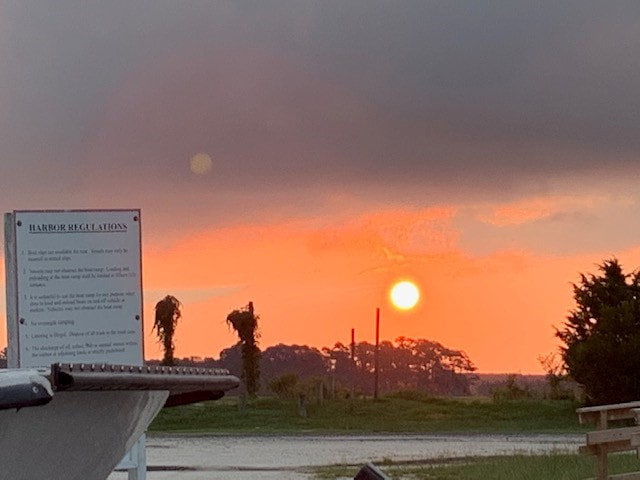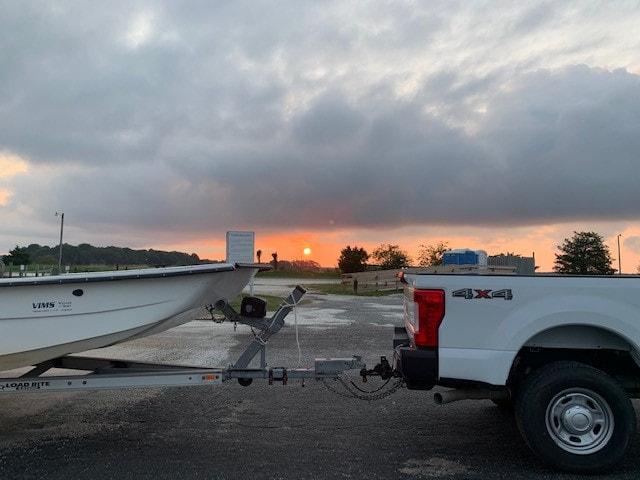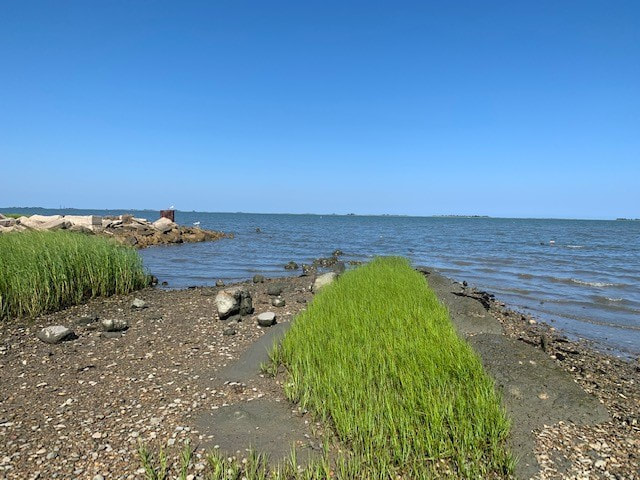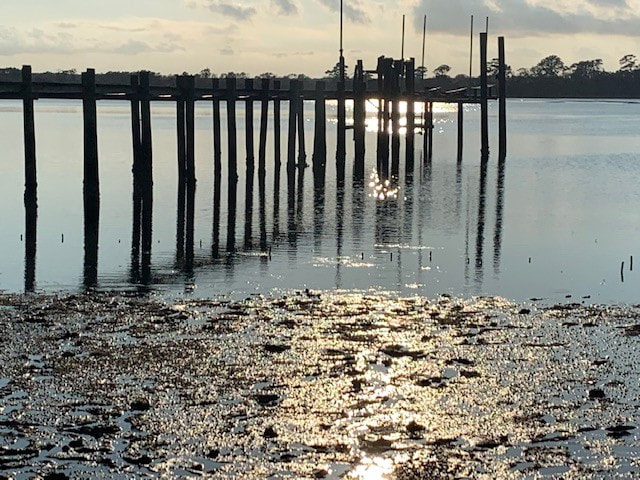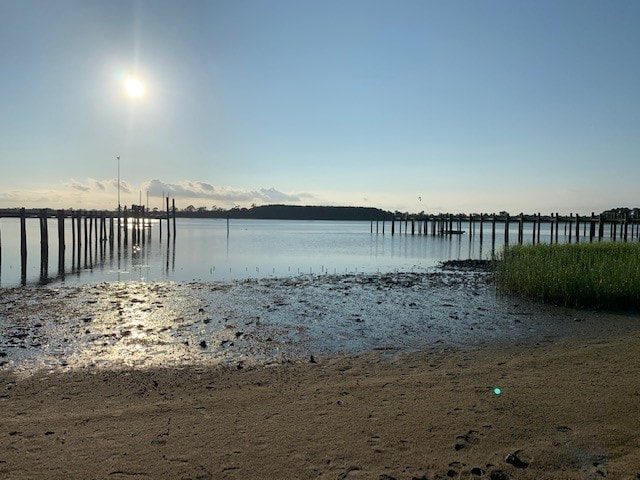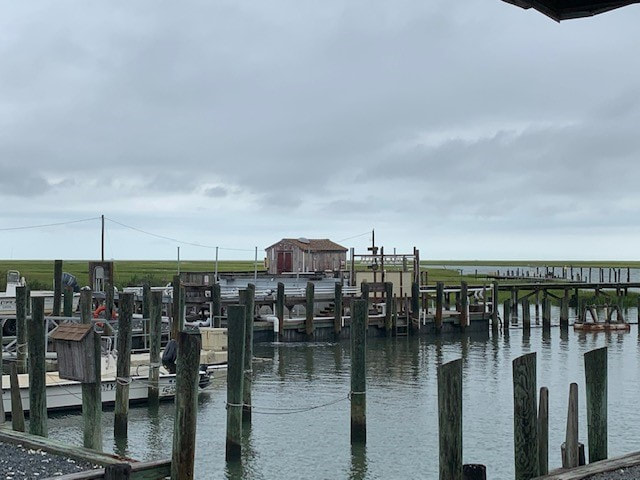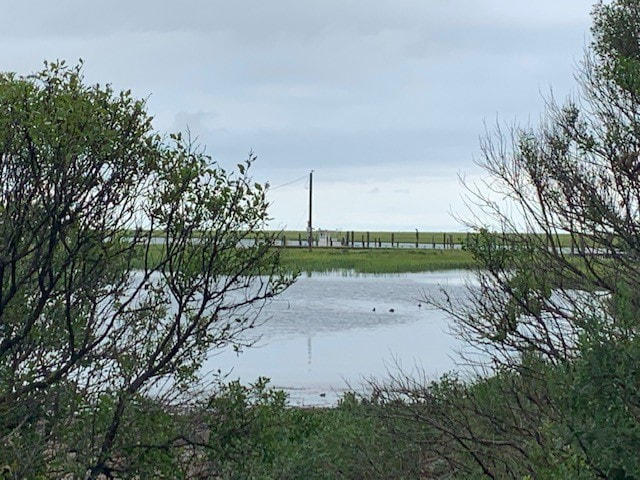|
With my fellow colleagues, Amy Fowler at GMU and Carrie Keogh at Emory, we were able to recruit two undergraduate interns this summer for our parasite ecology internship at Shoals Marine Lab. The students are Grace Loonam (GMU) and Amanda Wolf (Emory). They did an excellent job getting acclimated to the island and also the parasites! They worked together on a joint project looking at signatures of trematode infection in Littorina spp. snails and have independent projects on the influences of temperature on cercarial shedding (Grace) and grazing/infection (Amanda). Super interesting findings so far! Because of COVID, they weren't able to be on the island the whole summer, but they were able to spend 3 weeks in June, go back to their home institutions and continue work there, and then return to the island for 2 weeks in July.
Tim had to postpone his field experiment until this summer 2021. He has set up various plots that include or do not include seagrass (Zostera) and the invasive seaweed A. vermiculophyllum. He is also surveying four local sites in the Beaufort and Harkers Island area for associated macroinvertebrates with seagrass and the invasive seaweed.
Nina has continued to sample biodiversity (free-living and parasitic) at the restored reefs along Taylor's Creek in Beaufort, NC as part of a collaboration between the Blakeslee and Gittman labs. These reefs were restored at different elevations. Nina is also interested in differences in biodiversity in front of and behind the reefs. Sampling started in October 2020 and will continue for the next couple of months for a year-long sampling period. Nina also set-up a new field experiment looking at oyster settlement and other recruits depending on orientation at the restored reefs and control plots, which will run this summer.
Tim was the recipient of a grant from the Lerner-Gray Memorial Fund for Marine Research from the American Museum of Natural History, Richard Gilder Graduate School. These grants provide financial assistance to highly qualified persons starting careers in marine zoology. Tim’s award will help him fund summer research examining associated macroinvertebrates with native (seagrass) and non-native (red alga, Agarophyton vermiculophyllum) foundational species of North Carolina’s estuaries. Fantastic news!
Congratulations to Christofer Brothers for getting his honors thesis research published at JEMBE!12/4/2020
Very excited to report that former undergraduate in the lab, Christofer Brothers, successfully got his ECU honors thesis research (2016-2018) published in the Journal of Experimental Marine Biology and Ecology this month! Christofer is now doing exciting research towards his PhD at UC Davis, but I know will continue to keep these little mud crabs in his heart. :) The paper abstract and a link to the article are below:
www.sciencedirect.com/science/article/pii/S002209811930320X?casa_token=oayH2WPJOsQAAAAA:WHVkLQ36mpgs4APOn8D9h7IIwrw_ARFw6auNsGfRreo7txowG2fc9JHZluoZDpbirdQlmvsf8w Alien vs predator play hide and seek: How habitat complexity alters parasite mediated host survival Christofer A. Brothers April M.H. Blakeslee Highlights • Native mud crabs are impacted by a non-native parasite in southeastern estuaries. • Predation susceptibility is influenced by infection status and habitat complexity. • Predation rates are highest in infected crabs in simple habitat. • Infected and uninfected crabs are more protected from predation in complex habitat. • Habitat usage differs in infected crabs versus uninfected crabs. Abstract Parasites can greatly affect the behavior of their hosts, influencing how they respond to biotic and abiotic factors within their communities. Some parasites are particularly impactful, causing significant reproductive and behavioral changes in hosts relative to uninfected conspecifics. In eastern North America, a non-native parasitic barnacle, Loxothylacus panopaei (Gissler, 1884), has severe reproductive impacts on native panopeid mud crab hosts, resulting in castration. Moreover, the parasite has been documented to induce significant behavioral changes, such as reducing mud crab activity, influencing predator-prey relationships, and enhancing hiding behaviors in infected host crabs. Yet much remains to be understood regarding the host's ability to escape predators in heterogeneous environments. We investigated the effects of L.panopaei parasitism on mud crab (flatback mud crab, Eurypanopeus depressus (Smith, 1869)) survival in simple versus complex habitats. In lab mesocosm experiments, habitat heterogeneity was manipulated using oysters and gravel, and predatory pressures came from two common predatory crabs in southeast Atlantic estuaries: the Atlantic mud crab, Panopeus herbstii (H. Milne Edwards 1884) and the stone crab, Menippe mercenaria (Say, 1818). We found L.panopaei-infected E. depressus crabs to have the lowest survival rates in the simple gravel habitat, while the crabs with the highest survival were uninfected crabs in the complex oyster habitat. Moreover, we detected differences between uninfected and infected crabs in habitat usage (oyster versus gravel) within the complex habitat. This study demonstrates the complexity of predator-prey dynamics in the face of impactful parasitism and global change, including the introductions of species to new communities where they may have strong impacts on host populations and community interactions. After a delay (and preparations to do field work safely during the pandemic), Laura is off to a great start with her research, getting in 4 sampling events so far in spring and summer, with 4 more to go in fall and winter. Laura's most recent field adventure (with help from Chris, Destiny, and myself) in the Pamlico and Neuse estuaries (9/26-9/27) happened to be on a beautiful fall-like weekend. We even observed (from a safe distance!) an alligator at one of our field sites (Swan Quarter)! Below are a few pictures from the day...
Very exciting news! Deja was selected as a winter intern for Mote Marine Lab’s Benthic Ecology Program. In her upcoming work in the lab, she will help restore benthic organisms, like scallops, and conduct seagrass and reef mapping. The program description for the internship is here:
https://mote.org/research/internships/college-internship-program-overview/benthic-ecology-program We are very proud!! Congratulations, Deja! Congratulations to Chris on leading the efforts of a fantastic collaboration between the Blakeslee and Gittman labs... bringing together restoration and parasites!
If you build it, they will come: Restoration positively influences free-living and parasite diversity in a restored tidal marsh C.S.Moore, R.K.Gittman, B.J.Puckett, E.H.Wellman, A.M.H.Blakeslee https://doi.org/10.1016/j.fooweb.2020.e00167 Abstract Ecological monitoring studies have shown that surrogate species can provide good predictive power for the community diversity of other taxa. In our study, we sampled for resident and transient fauna in several newly created oyster reefs. We also sampled for common multi-host parasites in these organisms, as parasite abundance can act as a surrogate for trophic complexity in structured habitat. The restoration consisted of three treatments: control plots (no restoration), stacked bags of oyster shell, and reefs constructed from a novel design made of concrete and burlap. We also included three previously restored loose-shell reefs for comparison. Over 16 months, we quantified parasite diversity in mudsnails, crustaceans, and benthic fishes, as well as crustacean and fish free-living diversity. Taxa richness increased post-restoration for most free-living and parasite groups, regardless of restoration design, and communities shifted toward reef-resident species assemblages. Shell bags showed the greatest positive change in richness one-year post-restoration—at 2× that of control plots on average. The relative abundance of trematodes also increased with time, particularly those using fish as final hosts, and nematodes, cestodes, and entoniscid isopods were also more abundant post-restoration. Habitat complexity and abiotic factors (e.g., temperature and dissolved oxygen) were also positively correlated with shifts in host and parasite diversity. Our study demonstrates that free-living and parasite responses to restoration can occur rapidly and are sensitive to restoration design and site-specific environmental characteristics. Parasites are thus a promising tool for quantifying biodiversity and ecosystem health, particularly in systems subject to frequent monitoring. On September 17th, I gave my department tenure talk (virtually). Definitely a huge relief to get through it! Now crossing fingers for a successful tenure review!!
The image below is a word cloud I made from the titles of my papers -- it was a fun way to show my areas of research. :) This past August, my collaborators and I managed to get some field work in within the estuaries of the eastern shore of Virginia. It was very hot, muddy, but also very beautiful. And I got to see the ever important and super cool trematode parasites of Tritia obsoleta. We visited several sites and for the second year in a row collected samples of the invasive red alga Agarophyton vermiculophylla to look for associated free-living and parasite communities.
|
|
